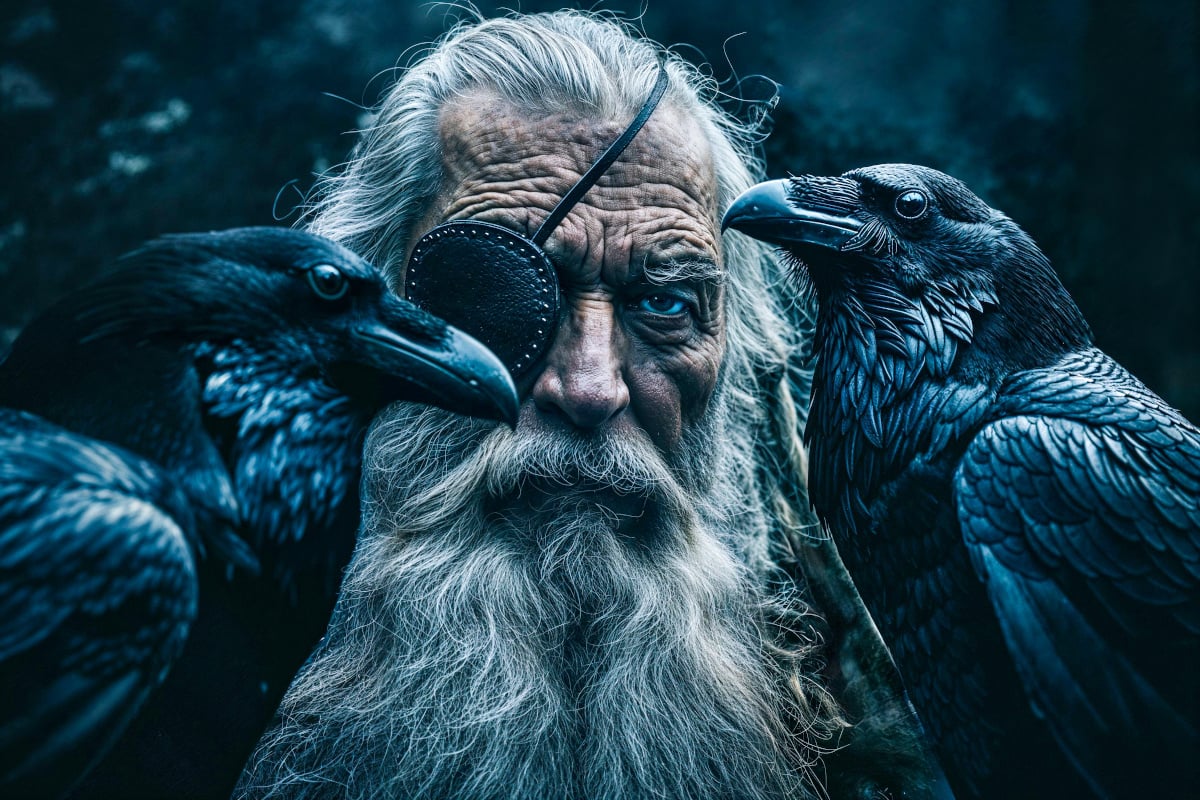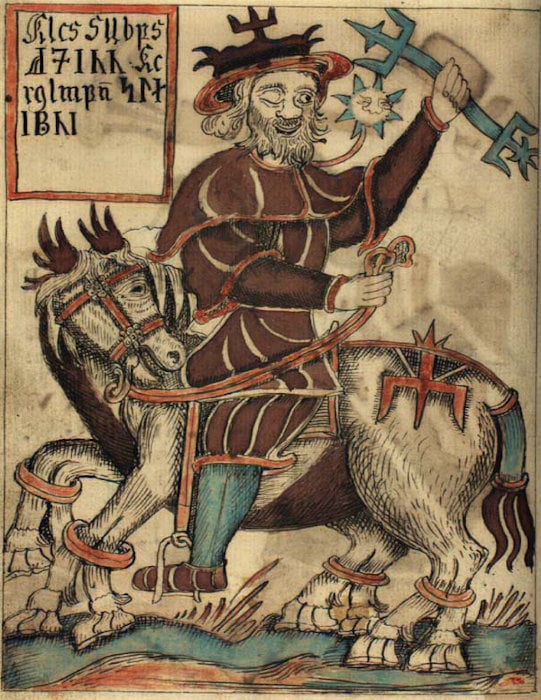
Gods of Sacrifice: Physical Impairments in Norse Myth and Society
In Norse mythology, the themes of impairment and sacrifice were imbued with deep, arcane meaning, illuminating the relationship between human existence and the divine. The Norse gods, formidable and wise, were not exempt from suffering and loss; even the celestial realm was bound by the necessity of braving trials for the salvation of cosmic balance. Mirrored in the lives of the Norse people, embracing hardship for a prosperous community was divinely favored. Within this mythic worldview, impairments and the act of sacrifice were not purely challenges to be overcome but revered as essential elements of honor, growth, and the enduring dance between destiny and self-determination.
Myself to Myself: Offerings at the Well
Beneath the roots of the sacred world tree Yggdrasil three wells could be found. One of the three, Mimisbrunnr, was the most enigmatic of them all, gifting great wisdom to whoever drank from it. Mimir, The Rememberer and guardian of memories, sipped its livening waters since the beginning of time. He was wise beyond all measure, the only one worthy of possessing such an empowering well. Still, a day came when a man of age, tall and imposing, with a long grey beard, cloaked in a dark blue hood traveled through the perilous land of giants to meet with Mimir in hopes of obtaining this wisdom.
- Twilight of the Gods: Norse Creation Myths and the Birth of Monsters and Man
- Seidr Norse Magic And Noaidi Shamans Shaping Destinies
Mimir was not particularly happy to see him, the well was his and his alone. But the traveler was persistent, offering anything the wise man would take in exchange for just a sip. It was settled, Mimir requested an eye, and the traveler did not hesitate. Ripping his eye from its socket, he plunged it into the well, watching it sink as it gazed back. A sip was all he needed. In a moment’s burst, all things became clear, wisdom and knowledge swirled through his brain, and his singular eye saw more than any two eyes could.

An illustration of Odin on Sleipnir. (Public Domain)
He was Odin, the All-Father, king of gods and men, and he knew that true wisdom came from sacrifice. Losing his eye was only the beginning of his pursuit for wisdom and the salvation of his people - prophecy had told that the end of gods would inevitably be upon them. His mission was of dire consequence. After leaving Mimir to his well, Odin hung himself from Yggdrasil, and with his indestructible spear, he ran himself through, a wound that would kill any mortal. For nine days and nine nights, he suffered in his self-inflicted pain, fixated on the well that flowed below him, the Well of Urdr, past. On the last day, magical runes manifested before him, and his mission was thus complete.
“I know that I hung on a wind-rocked tree nine whole nights, with a spear wounded, and to Odin offered myself to myself; on that tree of which no one knows from what roots it springs.” (Odin’s Rune-Song, Thorpe)
Odin gave the gift of runes to humans to use for powerful magic. Returning to his mighty watchtower, over the rainbow bridge in Asgard, he watched the world while his ravens Hugin (thought) and Munin (memory) traversed the skies as his most loyal spies.
Another had ventured to Mimir’s well, but it was not to gain wisdom, it was to gain exceptional hearing. Helmdallr offered his ear or some of his ability to hear to the well, receiving the gift of sound he so desired and the gift of sight. He was the watchman of the gods, appointed to the rainbow bridge. For a hundred leagues he could see in day or night, and anything that made a sound, even a blade of grass, he could hear. Rarely did he sleep, always alert and ready with his horn, Gjallarhorn, whose sound echoed around the world.
While Mimir’s wisdom and profound ancestral knowledge served him well, his relationship with Odin would cause him to make an unintentional sacrifice of his own. The godly tribes of the Aesir and Vanir ceaselessly fought. During one of those tumultuous battles, the Vanir, knowing it would spite Odin, murdered Mimir by slicing off his head. Odin, desperate and determined to save his wise old friend, nursed the head through magic and herbal medicine. Mimir’s body was unsalvageable. Left as a mere head, Odin brought him back to his home, the well, among the waters of life’s past and future. There his head sat, and from time to time, Odin would call upon him for his unwavering counsel. Mimir, despite losing his body, retained all his knowledge and wisdom.




